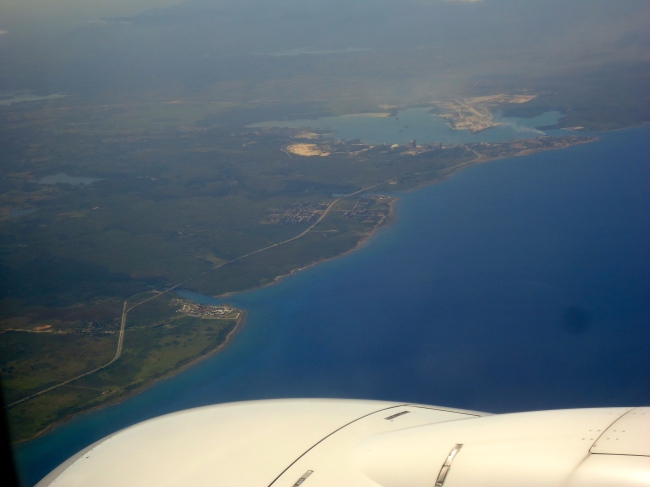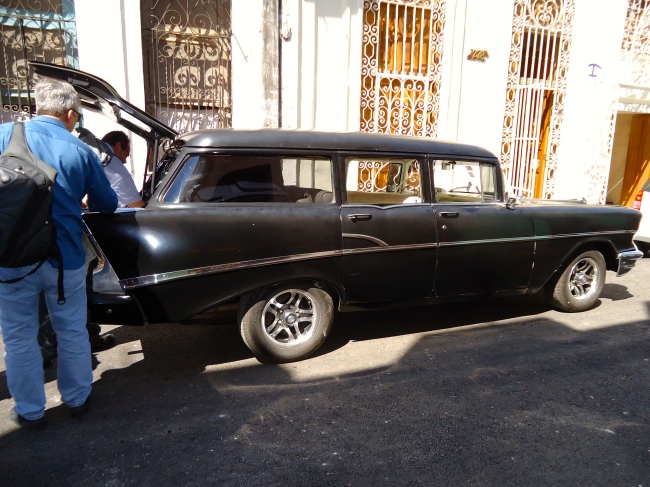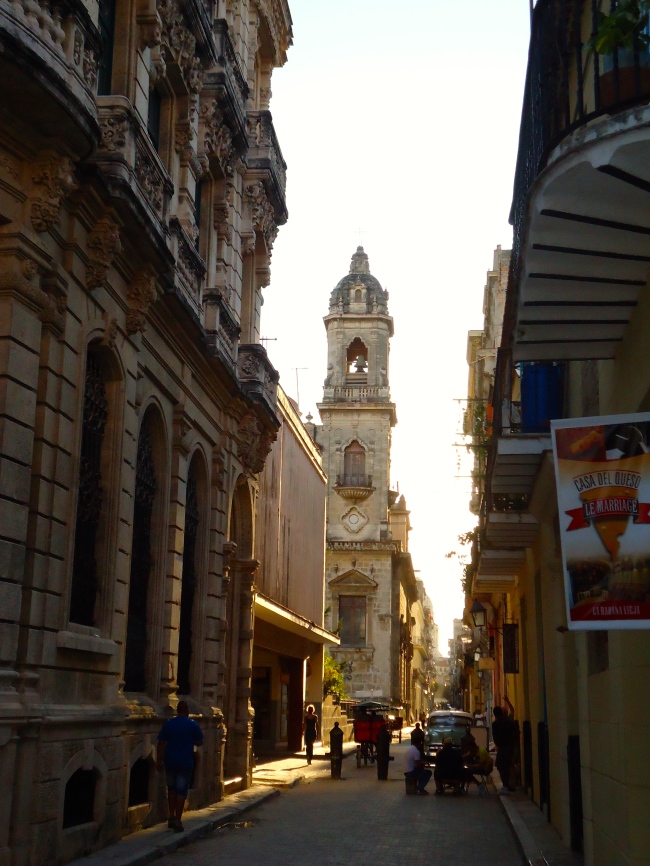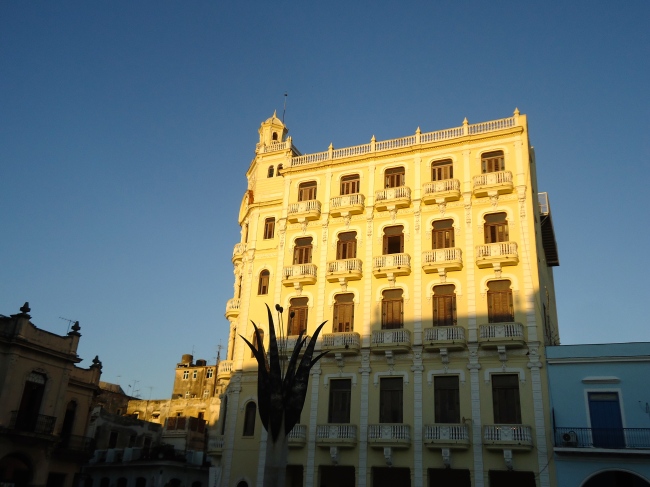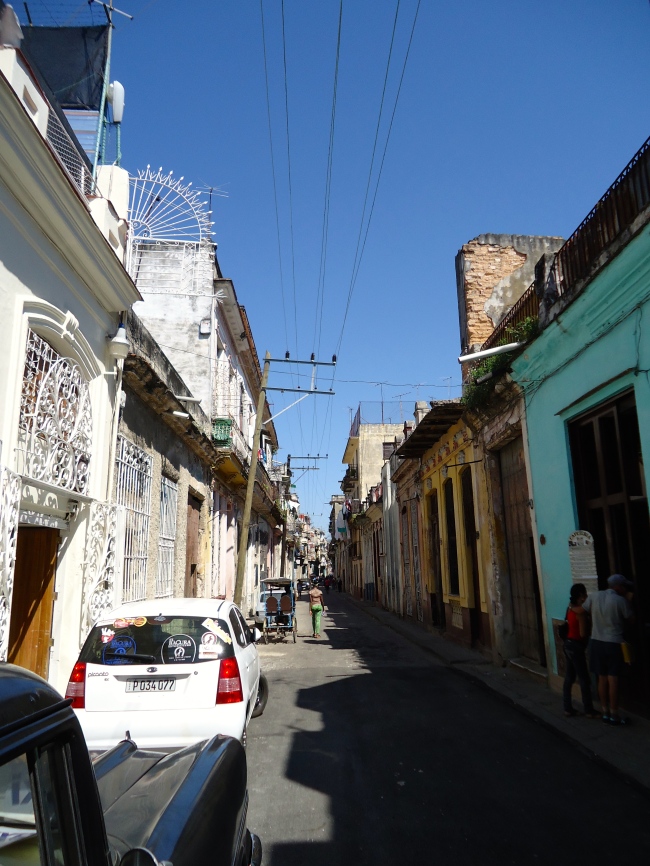I recently got back after spending a memorable week in Cuba. No, not Cuba, Missouri. The actual Cuba. The fact that Cuba is so close to the US yet “just out of reach” has always given it a mysterious appeal to me. I studied it in 9th grade history, read The Old Man and The Sea for a book report (because it was so short), and learned the legend of its homegrown—albeit fictitious—son, Tony Montana (a.k.a. “Scarface”). But other than what history and pop culture tell you, there’s really no way to know what Cuba is like unless you go there yourself or speak to someone who’s been there. My parents gave it a glowing review after they visited with an organized tour several years ago, so I decided if I ever got the opportunity to go there, I would. Fortunately, the opportunity came before I got too old.
I went as a member of a church mission team—perhaps one of the easiest ways for an American to get to Cuba, although the application process is far from easy. You need to apply for a special license through an organization called OFAC (Office of Foreign Assets Control, which falls under the Department of the Treasury). Licenses cover family visits, official government travel, journalistic activities, religious activities (how I got there), humanitarian projects, and so on. Even though there were extra steps needed, the turnaround went relatively quickly. We applied for our visas and licenses maybe a month before our scheduled departure date and had everything ready to go.
Rather than stay in hotels, our group divided up and stayed in casas particulares. A casa is essentially the equivalent to a bed & breakfast. There are two main advantages to staying in a casa: 1) you’ll pay a lot less than you would in most hotels; 2) you get to interact with locals or other travelers who may happen to be staying in the same casa. I developed a strong relationship with my casa’s owners: a middle-aged couple with 3-year old boy. The casa was basically a four-story walkup with a couple of units on each floor. The room I shared with another member of my team had two bedrooms, one bath, a living area with a fridge, and a balcony offering a very nice view of Obispo Street (one of the main drags in Havana; Think “Bourbon Street” or “Duval Street”). Breakfast was not provided, but we were within walking distance of the Hotel Inglaterra, which offered a very nice buffet breakfast for about USD $6.
Some other randomly assorted thoughts on my experience in Cuba:
The first rule of Cuba is: You do not talk politics in Cuba. The second rule of Cuba is: You do not talk politics in Cuba. Luckily for me, I don’t like talking about politics while I’m in the US, so that was pretty easy for me to follow. Still, there were some Cubans I spoke to who brought up the difficulties they are facing under the current regime. I had to very cautiously sidestep while making sure they understood that I was sympathetic. You know the expression, “The walls have ears?” Well, the walls in Cuba literally do have ears, and I didn’t want to test how sharp they were.
I was struck (though not necessarily surprised) by how kind and approachable the people were. Some even went out of their way to mention that, despite the friction between our governments, Cuban people are very supportive of Americans. A couple of them even asked me what Americans think of Cuba. My response was that we think of Cuba as a mysterious, unknown place, but that doesn’t mean that we don’t want to understand it. Many Cubans have relatives living in the United States, and this provides a stronger link between the two countries than any geopolitical force could.
Che Guevara’s image is known to many. It has appeared on t-shirts, coffee mugs, and even on my room keychain at the place where I stayed in Havana. In Cuba, you can’t go very far without seeing his likeness painted on a wall or elsewhere. After being exposed so many times, you might be happy to know that I never caught “Che Fever” and had absolutely no desire to purchase anything bearing his likeness.
As I mentioned above, I read one of Ernest Hemingway’s classics back in the day. Even though I’ve only read two or three of his books, I’ve become a fan of his through my life experiences. I lived in Tanzania for two years (and climbed Kilimanjaro), I visited his home in Key West, and now, I also have Cuba. My casa was only a block away from a famous bar called El Floridita. This bar is famous for two things: 1) being the birthplace of the Daiquiri; 2) being a place where Hemingway hung out whenever he was in Havana (Ezra Pound and Graham Greene also hung out there). There is even a statue of “Papa” Hemingway at the end of the bar, where he used to sit. I went there and had a daiquiri just because. Nothing too memorable, but I’m also not a daiquiri fan. I did not get a chance to visit La Bodeguita del Medio, which is the birthplace of the mojito. Maybe on the next trip.
I was warned about how bland the food is in Cuba. Granted, it doesn’t have the zippy flavor that Mexican food does, but it’s still good in its own right. I was even pleasantly surprised to find a Cuban Sandwich on the menu of a restaurant we visited (in case you’re wondering, it’s known there as a “Port Sandwich”).
And while we’re talking food…
Going out for Chinese food in Havana seemed intriguing on the surface, but it was anything but. Stick with what the Cubans do best and wait for everything else until you get back home. That said, I’m sure Cubans who’ve never tried Chinese food elsewhere may not feel as strongly on the issue.
Though I may disagree with the US government on many issues, I will always be glad that I can complain about it openly and not get arrested for doing so.
One of the inside jokes I had with another travel companion was, “Why do they call [the drink] a Cuba Libre when Cuba isn’t libre (free)? I don’t know what the future holds for Cuba, but the fact that tourists are allowed in and that a form of religious freedom is now being allowed has the makings of better things to come. Of course, there is always the possibility that too much too soon could be detrimental (see Russia), but I’m hoping that the changes are gradual enough to prevent that from happening. Of course, there is a chance that nothing more will occur within my lifetime or even at all. Whatever happens, I’m glad I had the rare opportunity to visit and experience a country that not many people get to experience firsthand.

